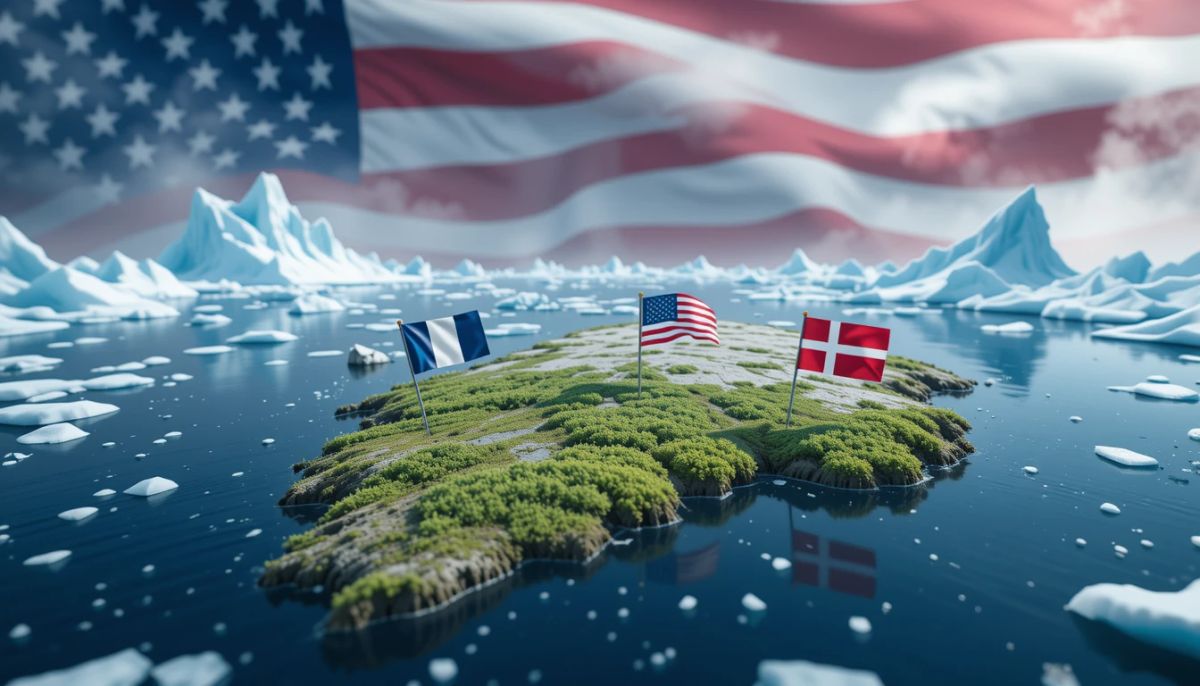In a surprising turn of international events, France has recently engaged in discussions with Denmark regarding the potential deployment of troops to Greenland. This development comes as a response to escalating tensions between Denmark and the United States, specifically concerning U.S. President Donald Trump's repeated expressions of interest in acquiring the Danish territory. As the situation unfolds, it has sparked a wave of diplomatic activity across Europe, highlighting the complexities of modern geopolitics and the delicate balance of power in the Arctic region.
The Origins of the Conflict
The roots of this diplomatic standoff can be traced back to President Trump's longstanding fascination with Greenland. Since his first term in office, Trump has repeatedly floated the idea of purchasing Greenland from Denmark, citing its strategic importance and vast natural resources. These statements, initially dismissed as jest by many, have taken on a more serious tone in recent months.
In a shocking escalation, Trump has now hinted at the possibility of using military or economic measures to annex Greenland, a move that has sent shockwaves through European diplomatic circles. This aggressive stance has not only strained U.S.-Danish relations but has also raised concerns among NATO allies about the stability of the transatlantic partnership.
Denmark's Response and European Solidarity
Faced with this unprecedented challenge to its sovereignty, Denmark has been actively seeking support from its European allies. Danish Prime Minister Mette Frederiksen has embarked on a whirlwind tour of European capitals, including Berlin and Paris, to rally support against potential American actions.
The response from European nations has been swift and unequivocal. German Chancellor Olaf Scholz held talks with Frederiksen, pledging Germany's full support for Denmark's territorial integrity. Similarly, NATO Secretary-General Mark Rutte was scheduled to meet with the Danish Prime Minister in Brussels, underscoring the alliance's commitment to its member states.
France's Offer of Military Support
In this context, France's consideration of troop deployment to Greenland marks a significant escalation in European involvement. French Foreign Minister Jean-Noël Barrot confirmed in an interview with Sud Radio that discussions have taken place with Denmark regarding potential military support.
Barrot emphasized France's readiness to provide assistance if requested by Denmark, stating, "European borders are sovereign, whether they are north, south, east or west." This statement not only reaffirms France's commitment to European solidarity but also sends a clear message to the United States about the inviolability of European territorial boundaries.
However, it's important to note that while talks have been initiated, Barrot clarified that it is "not Denmark's wish" to proceed with troop deployment at present. This nuanced approach highlights the delicate balance European nations are trying to strike between showing strong support for Denmark and avoiding further escalation of tensions with the United States.
The Strategic Importance of Greenland
To understand the gravity of the situation, it's crucial to consider Greenland's strategic significance. As the world's largest island, Greenland occupies a pivotal position in the Arctic region. Its location makes it a valuable asset for military operations, scientific research, and natural resource exploitation.
Greenland is rich in rare earth elements, which are crucial for modern technology and green energy solutions. Additionally, as climate change leads to the melting of Arctic ice, new shipping routes are opening up, potentially transforming global trade patterns. These factors combine to make Greenland an increasingly attractive target for geopolitical maneuvering.
Implications for International Relations
The ongoing dispute over Greenland has far-reaching implications for international relations:
- NATO Cohesion: The situation puts strain on NATO, with one member (the U.S.) threatening the territorial integrity of another (Denmark).
- Arctic Geopolitics: It highlights the growing importance of the Arctic region in global politics and resource competition.
- European Unity: The crisis has prompted a show of European solidarity, potentially strengthening ties within the EU.
- U.S.-Europe Relations: The incident may lead to a reassessment of transatlantic partnerships and America's role in European security.
Looking Ahead
As the situation continues to evolve, several key questions remain:
- Will Denmark accept military support from its European allies if U.S. pressure intensifies?
- How will this crisis affect long-term U.S.-European relations, particularly within NATO?
- What impact will this have on Arctic governance and resource management?
The international community watches closely as these events unfold, aware that the resolution of this crisis could set important precedents for territorial disputes and international cooperation in the 21st century.
Conclusion
The consideration of French troop deployment to Greenland represents a significant moment in modern European diplomacy. It underscores the complex interplay of sovereignty, alliance obligations, and geopolitical interests in an increasingly multipolar world. As Denmark navigates this challenging situation with the support of its European allies, the outcome may well shape the future of international relations in the Arctic and beyond.
As we move forward, it's clear that diplomatic efforts will be crucial in resolving this dispute peacefully. The world watches with bated breath, hoping for a resolution that respects international law, preserves alliances, and maintains the delicate balance of power in this strategically vital region.
